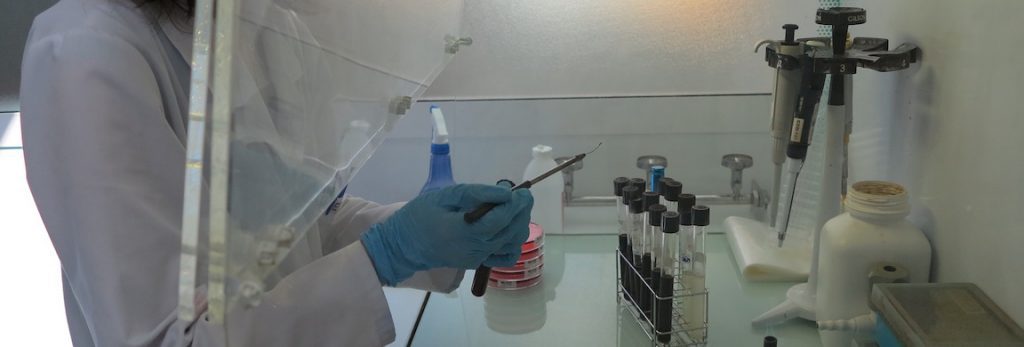Abwiz Bio Inc., created by CJ Okumura (Rady School of Management MBA ‘13 alumni), received a $225,000 one-year grant from the National Institute of Allergy and Infectious Diseases (NIAD). The company is pioneering the development of novel monoclonal antibody development biotechnology. The grant, part of the National Institute of Health (NIH), supports the development of therapeutic reagents for food allergies as part of the Small Business Technology Transfer (STTR).
Food allergies are a big deal in the U.S. The Food Allergy and Anaphylaxis Network estimates that as many as 15 million Americans suffer from food allergies with symptoms ranging from itching to diarrhea and life-threatening anaphylaxis. That’s why Abwiz Bio partnered with the La Jolla Institute to help bring their technology to life.
“Currently, there is no cure for this disease. Thus, novel, innovative therapeutic and preventive means are urgently needed,” Toshiaki Kawakami, M.D., Ph.D. and professor at the La Jolla Institute told Rady in a blog post. “We have accumulated evidence that histamine-releasing factor-mediated activation of mast cells and basophils is required for food allergies.”
The STTR program provides funding to support companies from idea creation to commercialization. It’s a highly competitive program that offers competitive awards based on technical feasibility, prototype development, concept, and the incentive to profit from commercialization. The program allows the chosen companies to retain ownership of their resulting intellectual property, but they have the potential to be sourced for government contracts during the commercialization phase.
Abwiz Bio, a privately-owned biotech startup lab, was chosen based on its specialization in monoclonal antibody development. “We are pleased to partner with the La Jolla Institute, which will utilize our state-of-the-art antibody technologies WizAmp for the development of therapeutic antibodies for food allergies, and we are thrilled that it will contribute to the treatment for food allergy patients,” Okumura told Rady.
